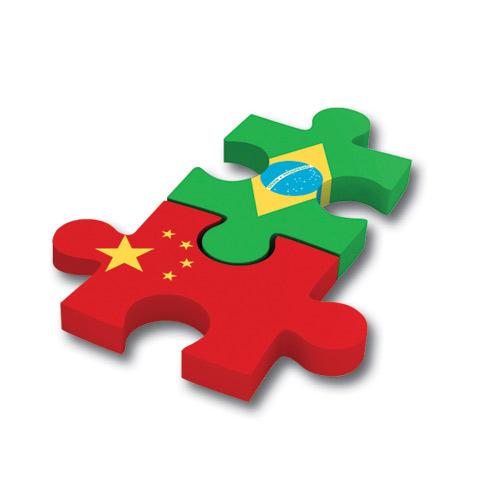
BEIJING, Nov. 16 (Xinhua) -- Although the "Singles' Day" shopping spree in China has come to an end this year, the global impact of the 24-hour event is far from diminishing. Over the other side of the ocean, it boosted e-commerce cooperation and two-way trade of China and Brazil, and the latter is a guest country of the first China International Import Expo (CIIE).
On the eve of the Singles' Day, warm-up advertisements can be seen everywhere in Brazil. Some websites even posted tips to help Brazilian consumers find their favorite products in the shopping festival.
In the recent years, more and more Brazilian online shoppers are accustomed to AliExpress, Gearbest and other cross-border e-commerce platforms, and many of them have become repeat customers of Chinese products with good quality and affordable prices.
Electronic products, especially smartphones, are the most popular Chinese consumer goods in Brazil. Chinese branded mobile phones such as Xiaomi and Vivo are already available at the Brazil page of Gearbest.
Due to the complicated tax system, electronic consumer products are usually expensive in Brazil, yet Chinese smartphones are relatively cheap, making it a preferred option, according to an analyst at a local e-consumer information website.
The analyst added that the success of China-designed mobile phones in Brazil can also be explained by their technical innovations, such as fingerprint recognition, large-screen and the use of scalable design to hide the camera, which are very popular among Brazilian consumers.
While Brazilian online shoppers are fascinated by products on sales on the Singles' Day, Brazilian producers and traders are also targeting China's e-commerce platforms, hoping to expand sales in the Chinese market. The CIIE which just ended in Shanghai, has become an accelerator to promote trade cooperation between the two sides.
On the eve of the Singles' Day, Brazil's JBS Group, one of the world's largest meat producers and processors, signed a three-year agreement with Chinese e-commerce giant Alibaba Group at the CIIE. According to the agreement, JBS will sell its beef, pork and chicken products with a projected total value of 1.5 billion U.S. dollars to the Chinese market through Alibaba's e-commerce network.
Also during the CIIE, the Brazilian Trade and Investment Promotion Agency (Apex-Brasil) signed a cooperation agreement with Alibaba and Tmall. About 500 Brazilian companies will enter the Chinese market through e-commerce platforms in the future, and Alibaba will provide fee reduction and e-commerce maintenance training for some of the companies.
At present, the cooperation between Chinese and Brazilian companies in the field of e-commerce has expanded to the field of payment services. Not long ago, Brazilian financial technology startup Nubank confirmed that it had obtained a strategic investment from China's Tencent. Moreover, Alibaba's Ant Financial is committed to subscribe to the initial public offering of Brazilian payment processing company StoneCo, according to a document of the latter.
China's further opening-up has presented more opportunities for Brazil to enhance bilateral trade with China, and Brazilian companies can also increase their investments in China, to combine with China's industrial advantages and improve their competitiveness in the global market, said Zhou Mi, researcher at the Chinese Academy of International Trade and Economic Cooperation (CAITEC) under China’s Ministry of Commerce. (Edited by Li Wenxin, Yang Qi, liwenxin@xinhua.org)




 A single purchase
A single purchase









